177 have author last names that start with S have author last names that start with S


Every fall close to one million hunters enter Pennsylvania’s forests and mountains in quest of the white-tailed deer. Some are seeking sport and companionship; others are stocking their larders for winter; many are conservationists who regard hunting as the most humane way of reducing overpopulated deer herds. They all face the increasing activism of animal rights advocates who are opposed to hunting in principle and who frequently picket and harass hunters.
This controversial subject is explored in depth by Mike Sajna, the outdoors columnist for Pittsburgh Magazine and a twenty-year veteran of Pennsylvania’s “pumpkin army,” the orange-clad throng that invades the woods every season. To explain the ethos and traditions of hunting he takes the reader to a typical deer camp in Warren County, in the rugged terrain of the Allegheny High Plateau. Starting with the trek north from their homes around Pittsburgh, he captures the sights and sounds, thoughts and feelings of three generations of hunters. With humor, affection, and insight he recounts the hunting lore, the camaraderie, the physical testing that make deer camp a unique experience.


Interest and Institutions is a collection of essays written by distinguished political scientist Robert Salsibury, a leading analyst of interest group politics. He offers his theories on the workings and influence of groups, organizations, and individuals in many different areas of American politics.


Not since Ernest Nagel’s 1939 monograph on the theory of probability has there been a comprehensive elementary survey of the philosophical problems of probablity and induction. This is an authoritative and up-to-date treatment of the subject, and yet it is relatively brief and nontechnical.
Hume’s skeptical arguments regarding the justification of induction are taken as a point of departure, and a variety of traditional and contemporary ways of dealing with this problem are considered. The author then sets forth his own criteria of adequacy for interpretations of probability. Utilizing these criteria he analyzes contemporary theories of probability , as well as the older classical and subjective interpretations.
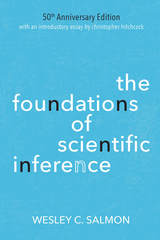
After its publication in 1967, The Foundations of Scientific Inference taught a generation of students and researchers about the problem of induction, the interpretation of probability, and confirmation theory. Fifty years later, Wesley C. Salmon’s book remains one of the clearest introductions to these fundamental problems in the philosophy of science. With The Foundations of Scientific Inference, Salmon presented a coherent vision of the nature of scientific reasoning, explored the philosophical underpinnings of scientific investigation, and introduced readers to key movements in epistemology and to leading philosophers of the twentieth century—such as Karl Popper, Rudolf Carnap, and Hans Reichenbach—offering a critical assessment and developing his own distinctive views on topics that are still of central importance today.
This anniversary edition of Salmon’s foundational work in the philosophy of science features a detailed introduction by Christopher Hitchcock, which examines the book’s origins, influences, and major themes, its impact and enduring effects, the disputes it raised, and its place in current studies, revisiting Salmon’s ideas for a new audience of philosophers, historians, scientists, and students.

As Aristotle stated, scientific explanation is based on deductive argument--yet, Wesley C. Salmon points out, not all deductive arguments are qualified explanations. The validity of the explanation must itself be examined. Four Decades of Scientific Explanation provides a comprehensive account of the developments in scientific explanation that transpired in the last four decades of the twentieth century. It continues to stand as the most comprehensive treatment of the writings on the subject during these years.
Building on the historic 1948 essay by Carl G. Hempel and Paul Oppenheim, "Studies in the Logic of Explanation,” which introduced the deductive-nomological (D-N) model on which most work on scientific explanation was based for the following four decades, Salmon goes beyond this model's inherent basis of describing empirical knowledge to tells us “not only what, but also why.” Salmon examines the predominant models in chronological order and describes their development, refinement, and criticism or rejection.
Four Decades of Scientific Explanation underscores the need for a consensus of approach and ongoing evaluations of methodology in scientific explanation, with the goal of providing a better understanding of natural phenomena.
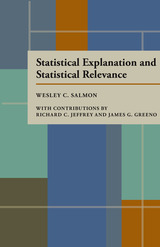


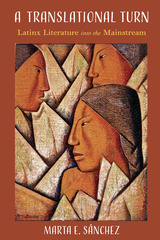

Seattle, often called the “Emerald City,” did not achieve its green, clean, and sustainable environment easily. This thriving ecotopia is the byproduct of continuing efforts by residents, businesses, and civic leaders alike. In Seattle and the Roots of Urban Sustainability, Jeffrey Craig Sanders examines the rise of environmental activism in Seattle amidst the “urban crisis” of the 1960s and its aftermath.
Like much activism during this period, the environmental movement began at the grassroots level—in local neighborhoods over local issues. Sanders links the rise of local environmentalism to larger movements for economic, racial, and gender equality and to a counterculture that changed the social and political landscape. He examines emblematic battles that erupted over the planned demolition of Pike Place Market, a local landmark, and environmental organizing in the Central District during the War on Poverty. Sanders also relates the story of Fort Lawton, a decommissioned army base, where Audubon Society members and Native American activists feuded over future land use.
The rise and popularity of environmental consciousness among Seattle’s residents came to influence everything from industry to politics, planning, and global environmental movements. Yet, as Sanders reveals, it was in the small, local struggles that urban environmental activism began.

Mestizaje—the process of cultural, ethnic, and racial mixing of Spanish and indigenous peoples—has been central to the creation of modern national identity in Bolivia and much of Latin America. Though it originally carried negative connotations, by the early twentieth century it had come to symbolize a national unity that transcended racial divides.
Javier Sanjinés C. contends that mestizaje, rather than a merging of equals, represents a fundamentally Western perspective that excludes indigenous ways of viewing the world. In this sophisticated study he reveals how modernity in Bolivia has depended on a perception, forged during the colonial era, that local cultures need to be uplifted.
Sanjinés traces the rise of mestizaje as a defining feature of Bolivian modernism through the political struggles and upheavals of the twentieth century. He then turns this concept upside-down by revealing how the dominant discussion of mestizaje has been resisted and transformed by indigenous thinkers and activists. Rather than focusing solely on political events, Sanjinés grounds his argument in an examination of fiction, political essays, journalism, and visual art, offering a unique and masterly overview of Bolivian culture, identity, and politics.

In 1965, French microbiologist André Lwoff was awarded the Nobel Prize in Physiology or Medicine for his work on lysogeny—one of the two types of viral life cycles—which resolved a contentious debate among scientists about the nature of viruses. A Tale of Two Viruses is the first study of medical virology to compare the history of two groups of medically important viruses—bacteriophages, which infect bacteria, and sarcoma agents, which cause cancer—and the importance of Lwoff’s discovery to our modern understanding of what a virus is. Although these two groups of viruses may at first glance appear to have little in common, they share uniquely parallel histories. The lysogenic cycle, unlike the lytic, enables viruses to replicate in the host cell without destroying it and to remain dormant in a cell’s genetic material indefinitely, or until induced by UV radiation. But until Lwoff’s discovery of the mechanism of lysogeny, microbiologist Félix d’Herelle and pathologist Peyton Rous, who themselves first discovered and argued for the viral identity of bacteriophages and certain types of cancer, respectively, faced opposition from contemporary researchers who would not accept their findings. By following the research trajectories of the two virus groups, Sankaran takes a novel approach to the history of the development of the field of medical virology, considering both the flux in scientific concepts over time and the broader scientific landscapes or styles that shaped those ideas and practices.

The characters in the linked stories in Triple Time are living an uneasy mesh of two divergent cultures, in a place where tradition and progress are continually in flux. These are tales of confliction-of old and new, rich and poor, sexual repression and personal freedom. We experience a barren yet strangely beautiful landscape jolted by sleek glass apartment towers and opulent fountains. On the fringes of urbanity, Bedouins traverse the desert in search of the next watering hole.
Beneath a surface of cultural upheaval, the stories hold deeper, more personal meanings. They tell of yearnings-for a time lost, for a homeland, for belonging, and for love. Anne Sanow reveals much about the culture, psyche, and essence of life in modern Saudi Arabia, where Saudis struggle to keep their traditions and foreigners muddle through in search of a quick buck or a last chance at making a life for themselves in a world that is quickly running out of hiding places.




Winner, 2019 CHOICE Awards Outstanding Academic Title
Not a day goes by that humans aren’t exposed to toxins in our environment—be it at home, in the car, or workplace. But what about those toxic places and items that aren’t marked? Why are we warned about some toxic spaces' substances and not others? The essays in Inevitably Toxic consider the exposure of bodies in the United States, Canada and Japan to radiation, industrial waste, and pesticides. Research shows that appeals to uncertainty have led to social inaction even when evidence, e.g. the link between carbon emissions and global warming, stares us in the face. In some cases, influential scientists, engineers and doctors have deliberately "manufactured doubt" and uncertainty but as the essays in this collection show, there is often no deliberate deception. We tend to think that if we can’t see contamination and experts deem it safe, then we are okay. Yet, having knowledge about the uncertainty behind expert claims can awaken us from a false sense of security and alert us to decisions and practices that may in fact cause harm.
In the epilogue, Hamilton and Sarathy interview Peter Galison, a prominent historian of science whose recent work explores the complex challenge of long term nuclear waste storage.


Small in Real Life invokes the myth and melancholy of Southern California glamor, of starry-eyed women and men striving for their own Hollywood shimmer and the seamy undersides and luxurious mystique of the Golden State. Exiled to a Malibu rehab, an alcoholic paparazzo spies on his celebrity friend for an online tabloid. Down to her last dollar, a Hollywood hanger-on steals designer handbags from her dying friend’s bungalow. Blinded by grief, an LA judge atones after condescending to a failed actress on a date. When hunger for power, fame, and love betrays the senses, the characters in these nine stories must reckon with false choices and their search for belonging with the wrong people. Small in Real Life offers an insider’s view of California and the golden promises of possibility and redemption that have long made the West glitter.



The West Virginia mine war of 1920–21, a major civil insurrection of unusual brutality on both sides, even by the standards of the coal fields, involved thousands of union and nonunion miners, state and private police, militia, and federal troops. Before it was over, three West Virginia counties were in open rebellion, much of the state was under military rule, and bombers of the US Army Air Corps had been dispatched against striking miners.
The civil war began in the small railroad town of Matewan when Mayor C. C. Testerman and Police Chief Sid Hatfield sided with striking miners against agents of the Baldwin-Felts Detective Agency, who attempted to evict the miners from company-owned housing. Thunder in the Mountains was the first book-length account of this crisis in American industrial relations and governance, much neglected in historical accounts.


Savoie considers the war of reform waged by the leaders of these major industrial countries. Reagan declared that he had come to Washington to “drain the swamp” of bureaucracy, and set up the Grace Commission to investigate the operation of the U.S. government. Thatcher and Mulroney were equally committed to reform and initiated wide-ranging changes. By the end of the 1990s, the changes were dramatic. Many governments operations had been privatized in all three countries, and new management techniques had been introduced. In Great Britain, one observer judged that the changes were historically as important as the collapse of Keynesian economics.
Is government now better in these countries, and was political leadership right in focusing on management of the bureaucracy as the villain? Savoie suggests that the reforms overlooked problems now urgently requiring attention and, at the same time, attempted to address non-existent problems. He combines theory and research based on sixty-two interviews, nearly all with members of the executive branch of the governments of Britain, Canada and the United States.

Albert Sbragia considers American urban government as an investor whether for building infrastructure or supporting economic development. Over time, such investment has become disconnected from the normal political and administrative processes of local policymaking through the use of special public spending authorities like water and sewer commissions and port, turnpike, and public power authorities.
Sbragia explores how this entrepreneurial activity developed and how federal and state policies facilitated or limited it. She also analyzes the implications of cities creating innovative, special-purpose quasi-governments to circumvent and dilute state control over city finances, diluting their own authority in the process.


Few American cities reflect the challenges and promise of a twenty-first-century economy better than Pittsburgh and its surrounding region. Once a titan of the industrial age, Pittsburgh flourished from the benefits of its waterways, central location, and natural resources-bituminous coal to fire steel furnaces; salt and sand for glass making; gas, oil, and just enough ore to spark an early iron industry. Today, like many cities located in the manufacturing triangle that stretches from Boston to Duluth to St. Louis, Pittsburgh has made the transition to a service-based economy.
Pittsburgh and the Appalachians presents a collection of eighteen essays that explore the advantages and disadvantages that Pittsburgh and its surrounding region face in the new global economy, from the perspectives of technology, natural resources, workforce, and geography. It offers an extensive examination of the processes and factors that have transformed much of industrial America during the past half-century, and shows how other cities can learn from the steps Pittsburgh has taken through redevelopment, green space acquisition, air and water quality improvement, cultural revival, and public-private partnerships to create a more livable, economically viable region for future populations.


During a field trip in Detroit on a summer day in 1989, a group of African American fifth-, sixth-, and seventh-graders talked, laughed, and ate snacks as they walked. Later, in the teacher’s lounge, Jeanetta, an African American teacher chided the teachers, black and white, for not correcting poor black students for “eating on the street,” something she saw as stereotypical behavior that stigmatized students.
These thirty children from Detroit’s Cass Corridor neighborhood were enrolled in the Dewey Center Community Writing Project. Taught by seven teachers from the University of Michigan and the Detroit public schools, the program guided students to explore, to interpret, and to write about their community.
According to David Schaafsma, one of the teachers, the “eating on the street” controversy is emblematic of how cultural values and cultural differences affect education in American schools today. From this incident Schaafsma has written a powerful and compelling book about the struggle of teaching literacy in a racially divided society and the importance of story and storytelling in the educational process.
At the core of this book is the idea of storytelling as an interactive experience for both the teller and listener. Schaafsma begins by telling his own version of the “eating on the street” conflict. He describes the history of the writing program and offers rich samples of the students’ writing about their lives in a troubled neighborhood. After the summer program, Schaafsma interviewed all the teachers about their own version of events, their personal histories, and their work as educators. Eating on the Street presents all of these layered stories - by Schaafsma, his collegues, and the students - to illustrate how talking across multiple perspectives can enrich the learning process and the community-building process outside the classroom as well.
These accounts have strong implications for multicultural education today. They will interest teachers, educational experts, administrators, and researchers. Uniting theory and practice, Eating on the Street is on the cutting edge of pioneering work in educational research.

Over a period of seven years, Schak's fieldwork uncovers a structure of leadership, organizational methods, and alms-getting tactics. Moreover, certain members became upwardly mobile and able to leave this lifestyle. The severe stigma of gambling, adultery, and failure to marry proved the stimulus for a younger generation to leave begging behind.

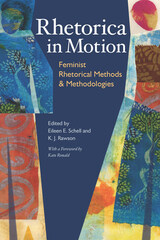
Rhetorica in Motion is the first collected work to investigate feminist rhetorical research methods in both contemporary and historical contexts. The contributors analyze the decision-making processes and methodologies employed in deciphering the origins, meanings, theories, workings, and manifestations of feminist rhetoric.
The volume examines familiar themes, such as archival, literary, and online research, but also looks to other areas of rhetoric, such as disability studies; gerontology/aging studies; Latina/o, queer, and transgender studies; performance studies; and transnational feminisms in both the United States and larger geopolitical spaces. Rhetorica in Motion incorporates previous views of feminist research, outlines a set of principles that guides current methods, and develops models for undertaking future inquiry, including working as individuals or balancing the dynamics of group research. The text explores how feminist research embodies what has come before and reflects what researchers, institutions, and instructors bring to it and what it brings to them. Underlying the discovery of this volume is the understanding that feminist rhetoric is in constant motion in a dynamic that resists definition.

Politically, the Bush White House sought the entrenchment of consistent Republican electoral majorities. Institutionally, the Bush administration sought to preserve control of Congress by maintaining reliable partisan Republican majorities, and to influence the federal courts with a steady stream of conservative judicial appointees. The administration also sought increased autonomy over the executive branch by the aggressive use of executive orders and bureaucratic reorganizations in response to 9/11.
Many of these efforts were at least partially successful. But ultimately the fate of the Bush presidency was tied to its greatest single gamble, the Iraq War. The flawed prosecution of that conflict, combined with other White House management failures and finally a slumping economy, left Bush and the Republican Party deeply unpopular and the victim of strong electoral reversals in 2006 and the election victory of Barack Obama in 2008. The American public had turned against the Bush agenda in great part because of the negative outcomes resulting from the administration's pursuit of that agenda.
This book assembles prominent presidential scholars to measure the trajectory of Bush's aspirations, his accomplishments, and his failures. By examining presidential leadership, popular politics and policymaking in this context, the contributors begin the work of understanding the unique historical legacy of the Bush presidency.


High Risk and Big Ambition brings together leading presidency scholars and journalists to assess the trajectory and character of Bush’s time in office. The common theme running through their contributions is that this presidency is best characterized by a series of bold political and policy risks in the service of two primary goals: the transformation of American foreign policy and the creation of a lasting Republican dominance of domestic politics.
Included are discussions of foreign policy, national security, the war in Iraq, Bush’s leadership style, religious politics, and economic policy. George W. Bush emerges as an "orthodox innovator" who skillfully deploys both personal politics and the power of his office in an effort to complete the conservative governmental agenda initiated by Ronald Reagan. Yet because of the size of his ambitions, each success sets up a greater risk of failure. That alone makes his presidency one of the most interesting and consequential in decades.
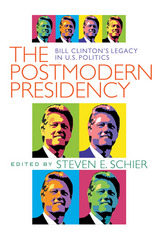
As America’s first truly postmodern president, Bill Clinton experienced both great highs and stunning lows in office that will shape the future course of American politics. Clinton will forever be remembered as the first elected president to be impeached, but will his tarnished legacy have lasting effects on America’s political system?
Including the conflict in Kosovo, the World Trade Organization meeting in Seattle, and new developments in the 2000 presidential campaign, The Postmodern Presidency is the most comprehensive and current assessment of Bill Clinton’s presidency available in print.
The book examines Clinton’s role in redefining the institution of the presidency, and his affect on future presidents’ economic and foreign policies. The contributors highlight the president’s unprecedented courtship of public opinion; how polls affected policy; how the president gained “celebrity” status; how Clinton’s “postmodern” style of public presidency helped him survive the 1994 elections and impeachment; and how all of this might impact future presidents.
This new text also demonstrates how the Clinton presidency changed party politics in the public and in Congress, with long-term implications and costs to both Republicans and his own Democratic party, while analyzing Clinton’s effect on the 1990s “culture wars,” the politics and importance of gender, and the politics and policy of race.

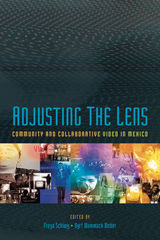

French philosopher Charles Renouvier played an influential role in reviving philosophy in France after it was proscribed during the Second Empire. Drawn to the ideals of the French Revolution, Renouvier came to recognize that the free will and civil liberties he supported were essential to the pursuit of science, contrary to the ideologies of positivists and socialists who would restrict liberty in the name of science. He struggled against monarchy and religious authority in the period up through 1848 and defended a liberal, secular form of political organization at a critical turning point in French history, the beginning of the Third Republic. As Warren Schmaus argues, Renouvier’s work provides an example of one way in which philosophy of science can succeed in bringing about change in political life—by critiquing political ideologies that falsely claim absolute certainty on religious, scientific, or any other grounds. Liberty and the Pursuit of Knowledge explores the understudied relationship between Renouvier’s philosophy of science and his political philosophy, shedding new light on the significance of his thought for the history of philosophy.

As Spain rebuilt its colonial regime in Cuba, Puerto Rico, and the Philippines after the Spanish American revolutions, it turned to history to justify continued dominance. The metropolitan vision of history, however, always met with opposition in the colonies.
The Conquest of History examines how historians, officials, and civic groups in Spain and its colonies forged national histories out of the ruins and relics of the imperial past. By exploring controversies over the veracity of the Black Legend, the location of Christopher Columbus’s mortal remains, and the survival of indigenous cultures, Christopher Schmidt-Nowara’s richly documented study shows how history became implicated in the struggles over empire. It also considers how these approaches to the past, whether intended to defend or to criticize colonial rule, called into being new postcolonial histories of empire and of nations.


In 1895, forty-seven rebel military officers contested the terms of a law that granted them amnesty but blocked their immediate return to the armed forces. During the century that followed, numerous other Brazilians who similarly faced repercussions for political opposition or outright rebellion subsequently made claims to forms of recompense through amnesty. By 2010, tens of thousands of Brazilians had sought reparations, referred to as amnesty, for repression suffered during the Cold War–era dictatorship. This book examines the evolution of amnesty in Brazil and describes when and how it functioned as an institution synonymous with restitution. Ann M. Schneider is concerned with the politics of conciliation and reflects on this history of Brazil in the context of broader debates about transitional justice. She argues that the adjudication of entitlements granted in amnesty laws marked points of intersection between prevailing and profoundly conservative politics with moments and trends that galvanized the demand for and the expansion of rights, showing that amnesty in Brazil has been both surprisingly democratizing and yet stubbornly undemocratic.
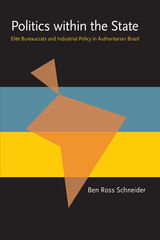


Sara Schoonmaker uses the technology industry to delve into one of the key political conflicts of our time: the construction of a free trade regime determined to open markets around the world to global capital, and attempts by Latin American, African, and other governments to resist this process. The Brazilian computer case is a prime example of a nationalist effort to promote local growth of a key high-technology industry—an effort that was eventually dismantled under the pressures of what Schoonmaker views as part of a broader process of neoliberal globalization.
High-Tech Trade Wars presents a multidimensional view of the globalization process, where economic changes are shaped by political struggle and cultural discourse. It includes interviews with Brazilian industrialists and state officials involved with implementing and, eventually, dismantling Brazil’s informatics policy, and discussions of grassroots-level protests organized against neoliberal globalization during the recent WTO meetings in Seattle and Davos, Switzerland.

Strategic Frames analyzes minority policies in Estonia and Latvia following their independence from the Soviet Union. It weighs the powerful influence of both Europe and Russia on their policy choices, and how this intersected with the costs and benefits of policy changes for the politicians in each state.
Prior to EU accession, policymakers were slow to adopt minority-friendly policies for ethnic Russians despite mandates from the European Union. These initiatives faced majority opposition, and politicians sought to maintain the status quo and their positions. As Jennie L. Schulze reveals, despite the credit given to the democratizing influence of European institutions, they have rarely produced significant policy changes alone, and then only when domestic constraints were low. Whenever domestic opposition was high, Russian frames were crucial for the passage of reforms. In these cases, Russia’s activism on behalf of Russian speakers reinforced European frames, providing powerful justifications for reform.
Schulze’s attention to both the strategic framing and counter framing of external actors explains the controversies, delays, and suboptimal outcomes surrounding the passage of “conditional” amendments in both cases, as well as the local political climate postaccession.
Strategic Frames offers a significant reference on recent developments in two former Soviet states and the rapidly evolving spheres of political influence in the postindependence era that will serve students, scholars, and policymakers alike.

In this groundbreaking book, Katrina Schwartz examines the intersection of environmental politics, globalization, and national identity in a small East European country: modern-day Latvia. Based on extensive ethnographic research and lively discourse analysis, it explores that country’s post-Soviet responses to European assistance and political pressure in nature management, biodiversity conservation, and rural development. These responses were shaped by hotly contested notions of national identity articulated as contrasting visions of the “ideal” rural landscape.
The players in this story include Latvian farmers and other traditional rural dwellers, environmental advocates, and professionals with divided attitudes toward new European approaches to sustainable development. An entrenched set of forestry and land management practices, with roots in the Soviet and pre-Soviet eras, confront growing international pressures on a small country to conform to current (Western) notions of environmental responsibility—notions often perceived by Latvians to be at odds with local interests. While the case is that of Latvia, the dynamics Schwartz explores have wide applicability and speak powerfully to broader theoretical discussions about sustainable development, social constructions of nature, the sources of nationalism, and the impacts of globalization and regional integration on the traditional nation-state.

—Major Jackson
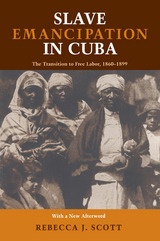
Slave Emancipation in Cuba is the classic study of the end of slavery in Cuba. Rebecca J. Scott explores the dynamics of Cuban emancipation, arguing that slavery was not simply abolished by the metropolitan power of Spain or abandoned because of economic contradictions. Rather, slave emancipation was a prolonged, gradual and conflictive process unfolding through a series of social, legal, and economic transformations.
Scott demonstrates that slaves themselves helped to accelerate the elimination of slavery. Through flight, participation in nationalist insurgency, legal action, and self-purchase, slaves were able to force the issue, helping to dismantle slavery piece by piece. With emancipation, former slaves faced transformed, but still very limited, economic options. By the end of the nineteenth-century, some chose to join a new and ultimately successful rebellion against Spanish power.
In a new afterword, prepared for this edition, the author reflects on the complexities of postemancipation society, and on recent developments in historical methodology that make it possible to address these questions in new ways.
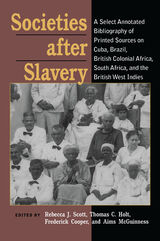

For the first time, The Walls Behind the Curtain presents a collection of works from East European novelists, poets, playwrights, and essayists who wrote during or after their captivity under communism. Harold B. Segel paints a backdrop of the political culture and prison and labor camp systems of each country, detailing the onerous conditions that writers faced. Segel then offers biographical information on each writer and presents excerpts of their writing. Notable literary figures included are Václav Havel, Eva Kanturková, Milan Šimecka, Adam Michnik, Milovan Djilas, Paul Goma, Tibor Déry, and Visar Zhiti, as well as many other writers.
This anthology recovers many of the most important yet overlooked literary voices from the era of Communist occupation. Although translated from numerous languages, and across varied cultures, there is a distinct commonality in the experiences documented by these works. The Walls Behind the Curtain serves as a testament to the perseverance of the human spirit and a quest for individual liberty that many writers forfeited their lives for.
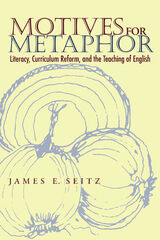
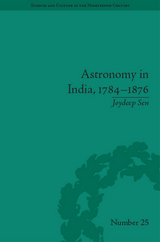

A number of important developments and discoveries across the British Empire's imperial landscape during the nineteenth century invited new questions about human ancestry. The rise of secularism and scientific naturalism; new evidence, such as skeletal and archaeological remains; and European encounters with different people all over the world challenged the existing harmony between science and religion and threatened traditional biblical ideas about special creation and the timeline of human history. Advances in print culture and voyages of exploration also provided researchers with a wealth of material that contributed to their investigations into humanity’s past.
Historicizing Humans takes a critical approach to nineteenth-century human history, as the contributors consider how these histories were shaped by the colonial world, and for various scientific, religious, and sociopolitical purposes. This volume highlights the underlying questions and shared assumptions that emerged as various human developmental theories competed for dominance throughout the British Empire.


Psychic Investigators examines British anthropology’s engagement with the modern spiritualist movement during the late Victorian era. Efram Sera-Shriar argues that debates over the existence of ghosts and psychical powers were at the center of anthropological discussions on human beliefs. He focuses on the importance of establishing credible witnesses of spirit and psychic phenomena in the writings of anthropologists such as Alfred Russel Wallace, Edward Burnett Tylor, Andrew Lang, and Edward Clodd. The book draws on major themes, such as the historical relationship between science and religion, the history of scientific observation, and the emergence of the subfield of anthropology of religion in the second half of the nineteenth century. For secularists such as Tylor and Clodd, spiritualism posed a major obstacle in establishing the legitimacy of the theory of animism: a core theoretical principle of anthropology founded in the belief of “primitive cultures” that spirits animated the world, and that this belief represented the foundation of all religious paradigms. What becomes clear through this nuanced examination of Victorian anthropology is that arguments involving spirits or psychic forces usually revolved around issues of evidence, or lack of it, rather than faith or beliefs or disbeliefs.

Secret Dialogues uncovers an unexpected development in modern Latin American history: the existence of secret talks between generals and Roman Catholic bishops at the height of Brazil's military dictatorship. During the brutal term of Emílio Garrastazú Médici, the Catholic Church became famous for its progressivism. However, new archival sources demonstrate that the church also sought to retain its privileges and influence by exploring a potential alliance with the military. From 1970 to 1974 the secret Bipartite Commission worked to resolve church-state conflict and to define the boundary between social activism and subversion. As the bishops increasingly made defense of human rights their top pastoral and political goal, the Bipartite became an important forum of protest against torture and social injustice. Based on more than 60 interviews and primary sources from three continents, Secret Dialogues is a major addition to the historical narrative of the most violent yet, ironically, the least studied period of the Brazilian military regime. Its story is intertwined with the central themes of the era: revolutionary warfare, repression, censorship, the fight for democracy, and the conflict between Catholic notions of social justice and the anticommunist Doctrine of National Security.
Secret Dialogues is the first book of its kind on the contemporary Catholic Church in any Latin American country, for most work in this field is devoid of primary documentary research. Serbin questions key assumptions about church-state conflict such as the typical conservative-progressive dichotomy and the notion of church-state rupture during harsh authoritarian periods. Secret Dialogues is written for undergraduate and graduate students, professional scholars, and the general reader interested in Brazil, Latin America, military dictatorship, human rights, and the relationship between religion and politics.

In the late eighteenth century, enlightened politicians and upper-class women in Spain debated the right of women to join one of the country’s most prominent scientific institutions: the Madrid Economic Society of Friends of the Country. Societies such as these, as Elena Serrano describes in her book, were founded on the idea that laypeople could contribute to the advancement of their country by providing “useful knowledge,” and their fellows often referred to themselves as improvers, or friends of the country. After intense debates, the duchess of Benavente, along with nine distinguished ladies, claimed, won, and exercised the right of women to participate in shaping the future of their nation by inaugurating the Junta de Damas de Honor y Mérito, or the Committee of Ladies of Honor and Merit. Ten years later, the Junta established a network of over sixty correspondents extending from Tenerife to Asturias and Austria to Cuba. With this book, Serrano tells the unknown story of how the duchess and her peers—who succeeded in creating the only known female branch among some five hundred patriotic societies in the eighteenth century—shaped Spanish scientific culture. Her study reveals how the Junta, by stressing the value of their feminine nature in their efforts to reform education, rural economy, and the poor, produced and circulated useful knowledge and ultimately crystallized the European improvement movement in Spain within an otherwise all-male context.
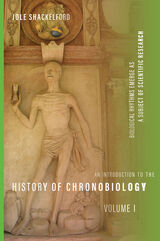
In three volumes, historian Jole Shackelford delineates the history of the study of biological rhythms—now widely known as chronobiology—from antiquity into the twentieth century. Perhaps the most well-known biological rhythm is the circadian rhythm, tied to the cycles of day and night and often referred to as the “body clock.” But there are many other biological rhythms, and although scientists and the natural philosophers who preceded them have long known about them, only in the past thirty years have a handful of pioneering scientists begun to study such rhythms in plants and animals seriously. Tracing the intellectual and institutional development of biological rhythm studies, Shackelford offers a meaningful, evidence-based account of a field that today holds great promise for applications in agriculture, health care, and public health. Volume 1 follows early biological observations and research, chiefly on plants; volume 2 turns to animal and human rhythms and the disciplinary contexts for chronobiological investigation; and volume 3 focuses primarily on twentieth-century researchers who modeled biological clocks and sought them out, including three molecular biologists whose work in determining clock mechanisms earned them a Nobel Prize in 2017.

In three volumes, historian Jole Shackelford delineates the history of the study of biological rhythms—now widely known as chronobiology—from antiquity into the twentieth century. Perhaps the most well-known biological rhythm is the circadian rhythm, tied to the cycles of day and night and often referred to as the “body clock.” But there are many other biological rhythms, and although scientists and the natural philosophers who preceded them have long known about them, only in the past thirty years have a handful of pioneering scientists begun to study such rhythms in plants and animals seriously. Tracing the intellectual and institutional development of biological rhythm studies, Shackelford offers a meaningful, evidence-based account of a field that today holds great promise for applications in agriculture, health care, and public health. Volume 1 follows early biological observations and research, chiefly on plants; volume 2 turns to animal and human rhythms and the disciplinary contexts for chronobiological investigation; and volume 3 focuses primarily on twentieth-century researchers who modeled biological clocks and sought them out, including three molecular biologists whose work in determining clock mechanisms earned them a Nobel Prize in 2017.
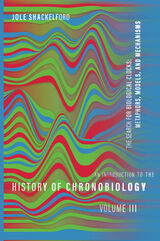
In three volumes, historian Jole Shackelford delineates the history of the study of biological rhythms—now widely known as chronobiology—from antiquity into the twentieth century. Perhaps the most well-known biological rhythm is the circadian rhythm, tied to the cycles of day and night and often referred to as the “body clock.” But there are many other biological rhythms, and although scientists and the natural philosophers who preceded them have long known about them, only in the past thirty years have a handful of pioneering scientists begun to study such rhythms in plants and animals seriously. Tracing the intellectual and institutional development of biological rhythm studies, Shackelford offers a meaningful, evidence-based account of a field that today holds great promise for applications in agriculture, health care, and public health. Volume 1 follows early biological observations and research, chiefly on plants; volume 2 turns to animal and human rhythms and the disciplinary contexts for chronobiological investigation; and volume 3 focuses primarily on twentieth-century researchers who modeled biological clocks and sought them out, including three molecular biologists whose work in determining clock mechanisms earned them a Nobel Prize in 2017.


WINNER OF THE 2010 AGNES LYNCH STARRETT POETRY PRIZE
“Glenn Shaheen is claiming new ground for American poetry. His poems are about the nightmares of information overload, collapsing infrastructure, ubiquitous violence, and other ills of late empire. The subjects are not happy, but Shaheen's clear vision and crisp—often witty—language offer the pleasures of surprise, discovery, and recognition.”
—Ed Ochester

All governments face problems and are judged by their ability to solve them and the policies they develop in doing so. Compared with other Western democracies, Israel has faced a devastating number of problems of unusual severity in a relatively short time: war, terrorism, heavy immigration, unsettled boundaries, economic stresses, internal disputes about ethnicity and religion, and the lingering scars of the Holocaust and other persecutions. Sharkansky’s analysis of the Israeli government’s routines and methods for coping with such an array of difficulties, from simple to complex to intractable, offers general insights into how governments make policy in a democracy.


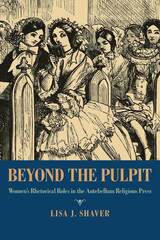
In the formative years of the Methodist Church in the United States, women played significant roles as proselytizers, organizers, lay ministers, and majority members. Although women’s participation helped the church to become the nation’s largest denomination by the mid-nineteenth century, their official roles diminished during that time. In Beyond the Pulpit, Lisa Shaver examines Methodist periodicals as a rhetorical space to which women turned to find, and make, self-meaning.
In 1818, Methodist Magazine first published “memoirs” that eulogized women as powerful witnesses for their faith on their deathbeds. As Shaver observes, it was only in death that a woman could achieve the status of minister. Another Methodist publication, the Christian Advocate, was America’s largest circulated weekly by the mid-1830s. It featured the “Ladies’ Department,” a column that reinforced the canon of women as dutiful wives, mothers, and household managers. Here, the church also affirmed women in the important rhetorical and evangelical role of domestic preacher. Outside the “Ladies Department,” women increasingly appeared in “little narratives” in which they were portrayed as models of piety and charity, benefactors, organizers, Sunday school administrators and teachers, missionaries, and ministers’ assistants. These texts cast women into nondomestic roles that were institutionally sanctioned and widely disseminated.
By 1841, the Ladies’ Repository and Gatherings of the West was engaging women in discussions of religion, politics, education, science, and a variety of intellectual debates. As Shaver posits, by providing a forum for women writers and readers, the church gave them an official rhetorical space and the license to define their own roles and spheres of influence. As such, the periodicals of the Methodist church became an important public venue in which women’s voices were heard and their identities explored.
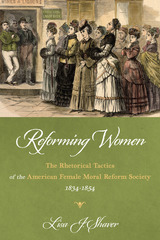
Drawing on an in-depth examination of the group’s periodical, Reforming Women delineates essential rhetorical tactics including women’s strategic use of gender, the periodical press, anger, presence, auxiliary societies, and institutional rhetoric—tactics women’s reform efforts would use throughout the nineteenth century. Almost two centuries later, female moral reformers’ rhetoric resonates today as our society continues to struggle with different moral expectations for men and women.
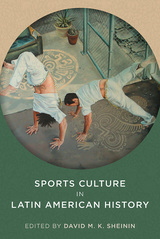
Sports Culture in Latin American History juxtaposes analyses of better-known activities such as boxing and soccer with first peoples’ athletics in Argentina, Cholita wrestling in Bolivia, the African-influenced martial art of capoeira, Japanese Brazilian gateball, the “Art Deco” body ideal for postrevolutionary Mexican women, Jewish soccer fans in Argentina and transgressive behavior at matches, and other topics. The contributors view the local origins and adaptations of these athletic activities and their significance as insightful narrators of history and culture.

By placing Brazilian and Argentine anti-literature at the crux of a new way of thinking about the field, Shellhorse challenges prevailing discussions about the historical projection and critical force of Latin American literature. Examining a diverse array of texts and media that include the visual arts, concrete poetry, film scripts, pop culture, neo-baroque narrative, and others that defy genre, Shellhorse delineates the subversive potential of anti-literary modes of writing while also engaging current debates in Latin American studies on subalternity, feminine writing, posthegemony, concretism, affect, marranismo, and the politics of aesthetics.









Clay, red clay in particular, recurs several times throughout the collection as a motif of earth. It is the substance of creation, but always of impermanent things, whether heroes or Babylonian statues with feet of clay, or of things durable but fragile, such as the cuneiform tablets of ‘A Parking Lot Just Outside the Ruins of Babylon.’”
—Robert Philen, from the Foreword




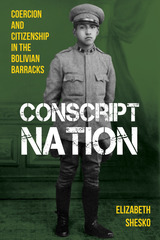
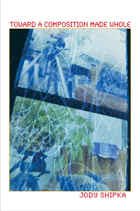
To many academics, composition still represents typewritten texts on 8.5” x 11” pages that follow rote argumentative guidelines. In Toward a Composition Made Whole, Jody Shipka views composition as an act of communication that can be expressed through any number of media and as a path to meaning-making. Her study offers an in-depth examination of multimodality via the processes, values, structures, and semiotic practices people employ everyday to compose and communicate their thoughts.
Shipka counters current associations that equate multimodality only with computer, digitized, or screen-mediated texts, which are often self-limiting. She stretches the boundaries of composition to include a hybridization of aural, visual, and written forms. Shipka analyzes the work of current scholars in multimodality and combines this with recent writing theory to create her own teaching framework. Among her methods, Shipka employs process-oriented reflection and a statement of goals and choices to prepare students to compose using various media in ways that spur their rhetorical and material awareness. They are encouraged to produce unusual text forms while also learning to understand the composition process as a whole. Shipka presents several case studies of students working in multimodal composition and explains the strategies, tools, and spaces they employ. She then offers methods to critically assess multimodal writing projects.
Toward a Composition Made Whole challenges theorists and compositionists to further investigate communication practices and broaden the scope of writing to include all composing methods. While Shipka views writing as crucial to discourse, she challenges us to always consider the various purposes that writing serves.




Hitler's barber imagines what might have been if only he'd leaned his weight into the razor. An oblivious Coronado narrowly avoids an ambush on the American plains. Freud lecherously lifts the skirt of a Mexican housekeeper who has far too much work to be bothered by “a pillar of modern thought. Or just some dirty old man.”
In lesser hands such disparate elements might fly wildly out of control. But in David Shumate's understated, brilliant prose poems, they come together in miraculously vivid riffs.
The narrator of the title poem rhapsodizes, “I wouldn't mind seeing another good flood before I die. It's been dry for decades. Next time I think I'll just let go and drift downstream and see where I end up.” Shumate's deft and refreshing collection takes us to amazing places with its plainspoken meditations.



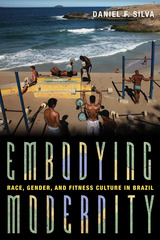
Embodying Modernity examines the current boom of fitness culture in Brazil in the context of the white patriarchal notions of race, gender, and sexuality through which fitness practice, commodities, and cultural products traffic. The book traces the imperial meanings and orders of power conveyed through “fit” bodies and their different configurations of muscularity, beauty, strength, and health within mainstream visual media and national and global public spheres. Drawing from a wide range of Brazilian visual media sources including fitness magazines, television programs, film, and social media, Daniel F. Silva theorizes concepts and renderings of modern corporality, its racialized and gendered underpinnings, and its complex relationship to white patriarchal power and capital. This study works to define the ubiquitous parameters of fitness culture and argues that its growth is part of a longer collective nationalist project of modernity tied to whiteness, capitalist ideals, and historical exceptionalism.
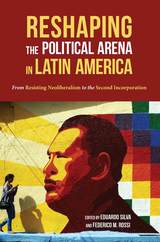
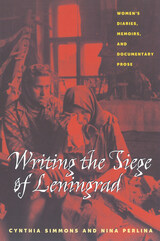
Silver Winner, ForeWord Magazine Book of the Year, History
From September 1941 until January 1944, Leningrad suffered under one of the worst sieges in the history of warfare. At least one million civilians died, many during the terribly cold first winter. Bearing the brunt of this hardship—and keeping the city alive through their daily toil and sacrifice—were the women of Leningrad. Yet their perspective on life during the siege has been little examined.
Cynthia Simmons and Nina Perlina have searched archival holdings for letters and diaries written during the siege, conducted interviews with survivors, and collected poetry, fiction, and retrospective memoirs written by the blokadnitsy (women survivors) to present a truer picture of the city under siege. In simple, direct, even heartbreaking language, these documents tell of lost husbands, mothers, children; meager rations often supplemented with sawdust and other inedible additives; crime, cruelty, and even cannibalism. They also relate unexpected acts of kindness and generosity; attempts to maintain cultural life through musical and dramatic performances; and provide insight into a group of ordinary women reaching beyond differences in socioeconomic class, ethnicity, and profession in order to survive in extraordinary times.

The textbooks written by Adolphe Ganot (1804–1887) played a major role in shaping the way physics was taught in the nineteenth century. Ganot's books were translated from their original French into more than ten languages, including English, allowing their adoption as standard works in Britain and spreading their influence as far as North America, Australia, India and Japan.
Simon's Franco-British case study looks at the role of Ganot's two textbooks: Traité élémentaire de physique expérimentale et appliquée (1851) and Cours de physique purement expérimentale (1859), and their translations into English by Edmund Atkinson. The study is novel for its international comparison of nineteenth-century physics, its acknowledgement of the role of book production on the impact of the titles and for its emphasis on the role of communication in the making of science.

Mexico's colonial experience had left a bitter legacy. Many believed that only the physical removal of the old colonial elite could allow the creation of a new political and economic order. While expulsion seemed to provide the answer, the expulsion decrees met stiff resistance and caused a tug-of-war between enforcement and evasion that went on for years. Friendship, family influence, intrigue, and bribery all played a role in determining who left and who stayed. After years of struggle, the movement died down, but not until three-quarters of Mexico's peninsulares had been forced to leave. Expulsion had the effect of crippling a once flourishing economy, with the flight of significant capital.
READERS
Browse our collection.
PUBLISHERS
See BiblioVault's publisher services.
STUDENT SERVICES
Files for college accessibility offices.
UChicago Accessibility Resources
home | accessibility | search | about | contact us
BiblioVault ® 2001 - 2024
The University of Chicago Press









